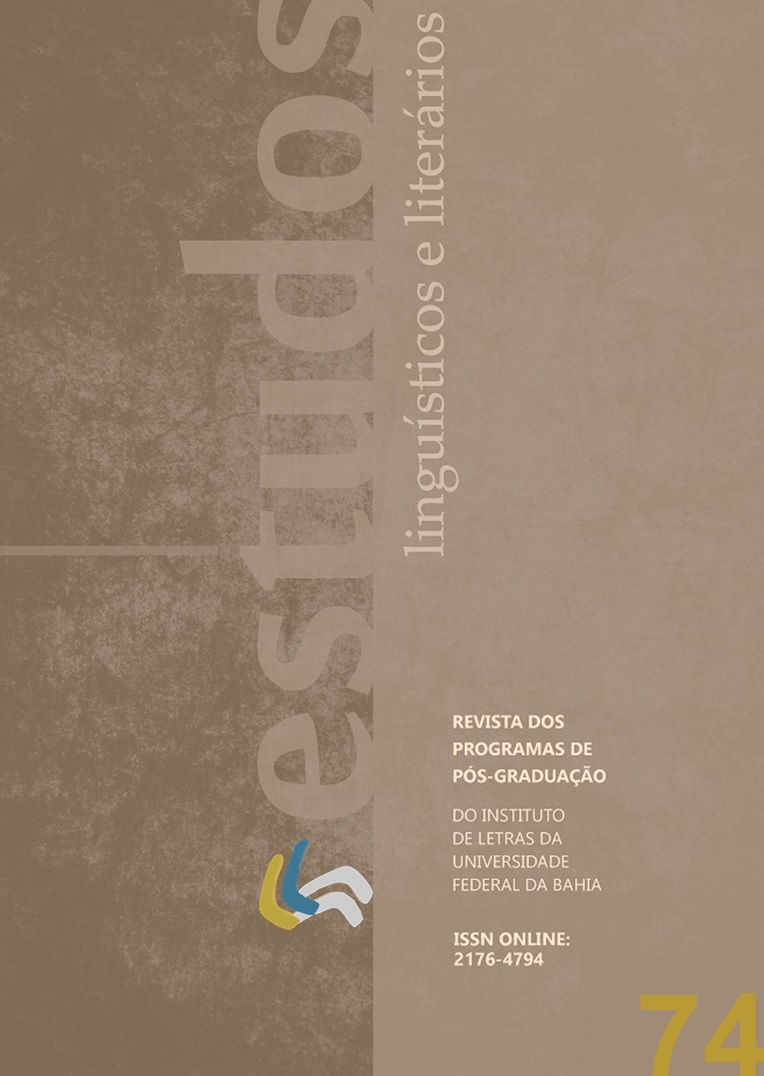ATTITUDES AND REPRESENTATIONS OF SPANISH AND THE SPREAD OF THE LANGUAGE INDUSTRIES IN BRAZIL
DOI:
https://doi.org/10.9771/ell.i74.51753Keywords:
Spanish teaching, Mercosul, Spanish diversityAbstract
This paper analyzes the context of Spanish language teaching in Brazil. We examine the representations of and attitudes toward Rioplatense/Argentinean Spanish and Peninsular Spanish—and toward the speakers of each of these varieties—held by Brazilian learners of Spanish as a foreign language. To provide the context in which Spanish learning takes place in Brazil, we report on the changes that the teaching of Spanish language has undergone since the 1990s in that country. We used two complementary research methodologies—matched guise and open questionnaires—to measure the representations and attitudes of learners taking Spanish classes in the state of São Paulo. Findings suggest that attitudes were impacted primarily by the sounds characterizing each different language variety. From there the participants moved toward their representations of the people and their nationalities. Based on these findings, we propose changes in the treatment of linguistic varieties in the classroom.
Downloads
References
ACUÑA, Leonor. El español como recurso económico: De Colón al Mercosur. Unidad en la Diversidad: Portal informativo sobre la lengua castellana, 17 de abril de 2002. Disponível em: http://www.unidadenladiversidad.com/opinion/opinion_ant/2002/abril_2002/opinion_170402.htm#Cuando%20la%20lengua%20es%20una%20empresa.
ALVAR, Manuel. Hombre, etnia, Estado. Madrid: Gredos, 1986.
ARNOUX, Elvira Narvaja. ‘La lengua es la patria’, ‘Nuestra lengua es mestiza’ y ‘El español es americano’: desplazamientos significativos en el III Congreso de la Lengua Española. Miradas sobre la lengua, 2007. Disponível em: https://miradassobrelalengua.blogia.com/2007/091701-elvira-narvaja-de-arnoux-la-lengua-es-la-patria-nuestra-lengua-es-mestiza-.php
BERTOLOTTI, Virginia. La expansión del español en América del Sur: el Instituto Cervantes y las universidades latinoamericanas. Hispanic Issues Series, v. 2, p. 191-197, 2007.
BUGEL, Talia. O Espanhol na cidade de São Paulo: Quem ensina qual variante a quem?. 1998. 202f. Dissertação (Mestrado em Linguística Aplicada), Universidade Estadual de Campinas, Campinas.
______. Español como lengua extranjera en Brasil: La política linguística de España reflejada en la prensa nacional. In: SÁNCHEZ CORRALES, Víctor M. (org.). Actas del XIII Congreso Internacional de ALFAL. San José: Universidad de Costa Rica, 2002, p. 1305-1311.
D’ANGLEJAN, Alison; TUCKER, G. R.. Sociolinguistic correlates of speech style. In: SHUY, Roger W.; FASOLD, Ralph (orgs.). Language Attitudes: Current Trends and Prospects. Washington, D.C: Georgetown University Press, 1973.
DEL VALLE, José; STHEEMAN, Gabriel. The Battle over Spanish between 1800 and 2000. Londes/Nova Iorque: Routledge, 2002.
DÍAZ GUERRERO, Rogelio; SALAS, Miguel. El diferencial semántico del idioma español. México: Trillas, 1975.
EL PAÍS [Madrid]. El viaje de los reyes a Brasil estimula la cooperación económica y el auge del castellano, 14 de julho de 2000.
EMBAJADA DE BRASIL EN ESPAÑA. Consulado geral Madrid. Relaciones Brasil-España. Valoración de las relaciones. http://www.brasil.es/brasil_espana.htm.
FERNÁNDEZ, Mauro. De la Lengua del Mestizaje al mestizaje de la lengua: reflexiones sobre los límites de una nueva estrategia discursiva. In: DEL VALLE, José (org.). La lengua ¿patria común?: Ideas e ideologías del español. Frankfurt/Madri: Iberoamericana /Vervuert, 2007, p. 57-80.
GARDNER, Robert; LAMBERT, Wallace. Attitudes and motivation in second-language learning. Rowley: Newbury House, 1972.
GONZÁLEZ , Neide; CELADA, María Teresa CELADA. El español en Brasil: un intento de captar el orden de la experiencia. In: SEDYCIAS, João (org.). O ensino do espanhol no Brasil. São Paulo: Parábola, 2005, p. 71-96.
HELLER, Monica. Globalization, the new economy and the commodification of language. Journal of Sociolinguistics, v. 7, n. 4, p. 473-492, 2003.
KACHRU, Braj. Models for Non-Native Englishes. In: KACHRU, Braj (org.). The Other Tongue: English across Cultures. Urbana/Chicago: University of Illinois Press, 1992, p. 48-74.
KRASHEN, Stephen. Principles and Practice in Second Language Acquisition. Nova Iorque: Prentice-Hall Internationa, 1987.
______. Second Language Acquisition and Second Language Learning. Nova Iorque: Prentice-Hall International, 1988.
LA NACIÓN. www.lanacion.com.ar. 16 de novembro de 2004 e 23 de julho de 2005.
LABOV, William. The Social Stratification of English. Washington: Center for Applied Linguistics, 1966.
LAMBERT, Wallace et alii. Evaluational reactions to spoken languages. Journal of Abnormal and Social Psychology, v. 60, n. 1, p. 44-51, 1960.
LAPESA, Rafael. Historia de la lengua española. Madri: Gredos, 1981.
O GLOBO [Rio de Janeiro]. Espanholas têm metas ambiciosas para liderar mercado editorial do país. 11 de junho de 2005. Disponível em: http://www.cbl.org.br/content.php?recid=2292.
RAJAGOPALAN, Kanavillil. The ambivalent role of English in Brazilian politics. World Englishes, v. 22, n. 2, p. 91-101, 2003.
SANTOS, Hélade S.. Quem sou eu? Quem é você? Será que a gente pode se entender? As representações no ensino/aprendizagem do espanhol como língua estrangeira. 2005. 190f. Dissertação (Mestrado em Língua espanhola e Literaturas Espanhola e Hispano-americana), Universidade de São Paulo, São Paulo.
______. As representações sobre o espanhol e o português na aprendizagem da língua estrangeira. Estudos Lingüísticos, XXXV. p. 893-902, 2006.
TEITELBAUM, H., EDWARDS, A.; HUDSON, A.. Ethnic attitudes and the acquisition of Spanish as a second language. Language Learning, n. 25, v. 2, p. 255-266, 1975.
VILÁ BARRETO, Joaquín. Attitudes, motivation and achievement in the learning of Spanish as a second language. 1982. Tese de Mestrado. Michigan State University.
WILLIAMS, Frederick. Some research notes on dialect attitudes and stereotypes. In: SHUY, Roger; FASOLD, Ralph (orgs.). Language Attitudes: Current Trends and Prospects. Washington D.C.: Georgetown University Press. 1973, p. 354-369.
WILLIAMS, Frederick. The identification of linguistic attitudes. International Journal of the Sociology of Language, v. 3, p. 21-32, 1974.
ZAMORA VICENTE, Alonso. Dialectología española. Madri: Gredos, 2000.


